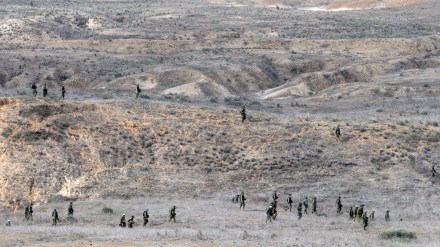India’s recent backing of a UN resolution condemning Israeli settlements in Palestine signals a diplomatic stance echoing the sentiments of 144 nations, including Malaysia, Bhutan, China, Japan, France, Russia, the UK, South Africa, and Sri Lanka. This united front, approving the resolution titled “Israeli Settlements in the occupied Palestinian Territory, including East Jerusalem and the Occupied Syrian Golan,” carries considerable significance.
Noteworthy is the fact that seven nations, importantly the United States and Canada, opposed this resolution, with 18 countries opting to abstain. India’s decision to align with the majority in supporting the resolution takes on added weight due to its earlier abstention from endorsing a United Nations General Assembly (UNGA) resolution, which called for a humanitarian truce between Israel and Hamas in the Gaza Strip.
The conflict between Israel and Hamas, triggered by the October 7 attacks, has cast a grim toll on Gaza, claiming over 11,000 lives. Within this toll, around 1,200 Israelis lost their lives in the Hamas attacks, with over 200 taken as hostages. India’s earlier decision to abstain in the UNGA vote stemmed from a subtle balance – expressing concern over the unfolding humanitarian crisis in Gaza while unwaveringly maintaining a stance against terrorism.
Sources within the Indian government shed light on the details of their decision-making process. The UNGA resolution, in its initial form, lacked explicit condemnation of the terrorist attacks on October 7. In response, an amendment was proposed to rectify this omission before the main resolution vote. Despite India voting in favor of the amendment, securing 88 votes, it fell short of the required two-thirds majority. Consequently, in the absence of the resolution fully aligning with India’s approach, they opted to abstain from the final vote on its adoption.
The decision-making process in New Delhi, as reported, adhered to a “steadfast and consistent position” on the issue. The nuanced explanation of their vote emphasized a comprehensive and holistic approach to addressing the complexities of the Israel-Palestine conflict. Government sources underlined that there can be “no equivocation on terror,” maintaining India’s unwavering stance against terrorism in any form.
India’s Deputy Permanent Representative, Yojna Patel, provided insight into the humanitarian aspects of their decision. She expressed solidarity with those taken hostages, calling for their immediate and unconditional release. Acknowledging the humanitarian crisis, Patel welcomed international efforts for de-escalation and the delivery of humanitarian assistance to the people of Gaza, highlighting India’s contribution to these efforts.
India’s foreign policy stance on the Israel-Palestine issue remains rooted in its consistent support for a negotiated Two-State solution. This solution envisions the establishment of a sovereign, independent, and viable State of Palestine coexisting peacefully with Israel within secure and recognized borders. This position aligns with Prime Minister Narendra Modi’s initial characterization of the October 7 attacks as a “terrorist” action.
Over time, India’s response to the crisis has evolved. The government’s unequivocal support for Tel Aviv, with no mention of Palestine, has transformed into a more balanced approach. As the human cost of the conflict continues to rise, the Ministry of External Affairs has stated India’s long-standing advocacy for direct negotiations towards establishing a sovereign, independent, and viable state of Palestine.
